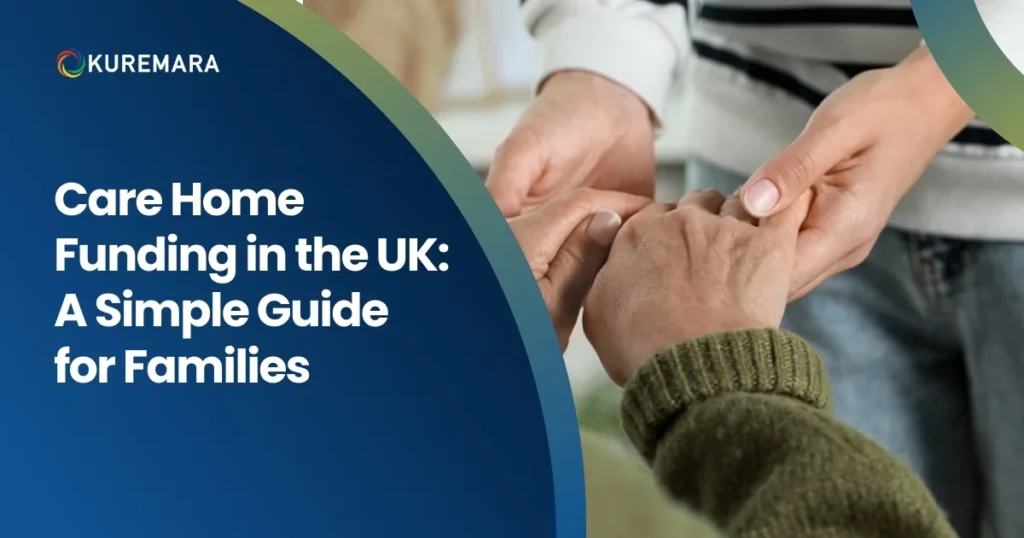
Precision, Compassion, and Care in Every Moment
Caring for someone with significant health needs is never simple. Whether it’s a child born with a complex condition, an adult living with a degenerative illness, or an elderly person recovering after surgery, the right kind of care makes all the difference.
Complex care, especially complex care at home, is designed for people with serious medical needs who want to live with dignity, safety, and a better quality of life within familiar surroundings. At Kuremara, we believe in more than just managing health conditions. We believe in supporting life every moment of it.
This guide explores what complex care at home looks like in the United Kingdom, who it’s for, how it works, and how to find a care provider that puts people first.
What Is Complex Care?
What is complex care? It is a specialist form of health and social support designed for individuals with long-term, multiple, or life-altering medical conditions that require ongoing clinical oversight and skilled care.
Unlike standard personal care or basic support services, complex care often involves:
- Nurse-led care planning
- Monitoring and managing medical equipment
- Regular treatments or therapy
- Around-the-clock supervision
It is often needed by individuals who may be:
- Using a ventilator or tracheostomy
- Being tube-fed (PEG or nasogastric feeding)
- Living with advanced neurological or genetic disorders
- Managing epilepsy with frequent seizures
- Experiencing severe brain, spinal, or physical injuries
- Receiving palliative or end-of-life care
Complex care bridges the gap between hospital-level treatment and home life, helping people live as independently and comfortably as possible.
Who Needs Complex Care at Home?
Complex care is suitable for people of all ages. Here are some examples:

- Children with cerebral palsy or other lifelong neurological conditions
- Adults with multiple sclerosis, muscular dystrophy, or spinal injuries
- Older adults recovering from stroke or living with advanced dementia
- Patients discharged from ICU who require continued medical attention
- Individuals receiving palliative care in the final stages of life
What they all have in common is a need for continuous, expert care that adapts to their medical and personal needs while allowing them to stay in the comfort of their own homes.
What’s Included in Complex Care Services?
Complex care is comprehensive. It combines high-level clinical support with personal care, emotional assistance, and family collaboration.
There are different types of complex care, each tailored to specific medical, physical, and emotional needs depending on the individual’s condition and level of clinical support required.
Here’s what it can involve:
1. Clinical Support
- Administering medications, including injections or IV therapy
- Tracheostomy and ventilator care
- PEG or nasogastric feeding
- Monitoring of vital signs (blood pressure, oxygen levels, etc.)
- Catheter and stoma care
- Wound and pressure sore management
2. Personal and Emotional Care
- Bathing, dressing, grooming
- Helping with eating and mobility
- Communication assistance
- Companionship to reduce isolation
- Overnight or live-in care for 24/7 supervision
3. Specialist Equipment Management
- Using hoists, hospital beds, oxygen therapy devices
- Maintaining and monitoring medical machines
- Creating a safe and accessible home care environment
These services are all guided by a tailored care plan developed in consultation with healthcare professionals, families, and (when possible) the person receiving care.
Why Choose Complex Care at Home Instead of a Hospital or Facility?
The benefits of complex care delivered at home extend beyond medical support, offering emotional stability, personalised attention, and improved quality of life.
Hospital stays are often stressful and impersonal. While some people assume that medical care can only happen in a facility, that’s no longer true. Complex care at home offers several major benefits:

- Comfort and Familiarity: Home is where people feel safest and most at ease.
- Reduced Hospital Readmissions: Home care can prevent complications that lead to hospital trips.
- Better Mental Health: Being surrounded by loved ones and personal belongings improves wellbeing.
- Personalised Attention: One-to-one care ensures better communication and trust.
- Family Involvement: Families can stay involved in daily routines and care plans.
- Infection Control: Less exposure to hospital-acquired infections.
With the right provider, complex care at home can match and often exceed the standard of care found in hospitals or care homes.
How to Choose a Complex Care Provider
Not all care providers are equipped to deliver complex care. Here’s what to look for:
Key Qualities to Consider:
- Nurse-led care plans with registered clinical oversight
- CQC registration (Care Quality Commission) to ensure legal and quality standards
- Specialist training in areas like tracheostomy, ventilator use, and PEG feeding
- 24/7 support availability for emergencies
- Collaborative approach with NHS teams and families
- Carers who are compassionate, skilled, and consistent
Ask the provider how they match carers with patients, what kind of ongoing training their team receives, and whether they can adapt services as needs change.
Funding and Eligibility Options
Worried about costs? There are several funding options available for complex care in the UK:

1. NHS Continuing Healthcare (CHC)
- Fully funded care for people with complex health needs
- Must meet eligibility criteria following an assessment
2. Local Authority Support
- Depending on your situation, your local council may fund part or all of your care
3. Direct Payments & Personal Health Budgets
- If eligible, you can receive money to arrange your own care provider
4. Private Funding
- For families who wish to top-up services or aren’t eligible for public funding
Kuremara can guide families through the funding process and help with assessments.
The Role of Family in Complex Care
Complex care isn’t just about the person receiving it—it’s also about supporting their family. That’s why good providers:
- Offer training to family carers so they can confidently help when needed
- Keep families updated on care plans and changes
- Provide emotional support and counselling options
- Ensure that care enables the person to stay close to loved ones and stay involved in everyday life
Families are essential partners in care, and their well-being matters too.
Technology in Complex Home Care
Today’s complex care providers use technology to deliver faster, safer, and more efficient services:
- Remote Monitoring: Blood pressure, oxygen, and other vitals tracked in real-time
- Emergency Alert Systems: Quick responses to critical changes
- Digital Records: Care updates shared with families or GPs securely
- Smart Equipment: Fall detectors, hoists, and medication reminders
This tech helps bridge the gap between hospitals, homes, and health professionals.
Kuremara’s Complex Care Services in the United Kingdom
At Kuremara, we believe that care should never compromise dignity. That’s why our complex care services are built around compassion, clinical excellence, and complete trust.
- Nurse-led, personalised care plans
- Highly trained and vetted carers
- Rapid care mobilisation across the UK
- Coordination with NHS, GPs, and hospitals
- Transparent communication with families
Whether it’s short-term rehabilitation or long-term support, we’re here to deliver professional, life-enhancing care at home.
Conclusion: Care Beyond Medical Needs
When it comes to complex health conditions, every detail matters. But care is more than just managing symptoms it’s about helping someone live fully, safely, and with dignity.
Complex care at home offers a path where individuals can stay close to their families, remain in the comfort of familiar surroundings, and still receive expert medical support.
At Kuremara, we walk with you through every challenge and every triumph because we believe in care that supports the whole person, not just the condition.



